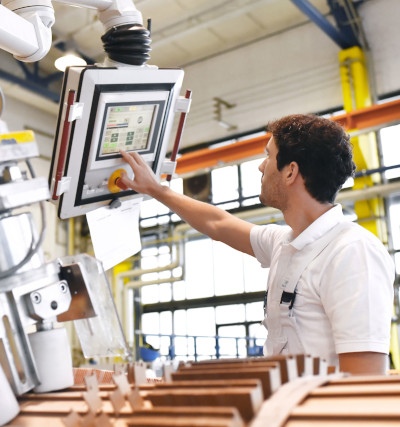
oneNews. Stay up to date with the latest news from oneword
On our blog you’ll find a round-up of the latest news from us, trends and topics in the translation industry, information about upcoming industry events, talks, training and conferences you shouldn’t miss, and other interesting information about languages and multilingual communication. Feel free to have a browse!
To make sure you never miss a news update, you can also receive onenews by e-mail.
Use machine translation professionally, securely and in compliance with technical documentation standards
We recently explained how machine translation can be used in a professional business context and how the IEC/IEEE 82079-1 documentation standard ensures that technical documentation is comprehensible and usable in all languages. Now comes the reality check: How exactly do you use machine translation for technical texts, technical documentation and communication and what do you have to do for it?
Medical translation is about quality and responsibility: oneword in healthcare marketing
The trade magazine Healthcare Marketing has published an article in its latest print edition that deals with the high demands of professional, reliable and safe translation in the international medical-pharmaceutical sector. The article includes an interview with Andrea Modersohn, director of oneword. We share the essentials.
Updating and tuning the engines: what is new in machine translation?
In the ever-changing field of machine translation (MT), hardly a month goes by without news: new providers, new functionalities, new languages, new thoughts on how MT can be integrated even better into everyday translation. Since we do just that and use the technology continuously in a wide variety of applications, we are close to the developments in the industry and have taken a closer look at some of the innovations.
Join in now: Comment on DIN draft standard for evaluating translations
As a permanent DIN member, oneword has been actively contributing towards shaping new norms and standards in the translation industry since 2019. ISO 5060, an important new standard for evaluating translations, is currently nearing completion. Experts and future users now have the opportunity to comment on the standard in its draft status. We warmly invite you to do this.
Reduce the risks of translation errors and additional costs through translation-oriented writing
At the beginning of July, the new DIN 8579 standard "Translation-oriented writing - Text production and text evaluation" was published. We take a look at the details and explain why authors of technical texts requiring translation cannot avoid this standard.
The best of both worlds: How machine translation (MTPE) and IEC/IEEE 82079-1 fit together
The IEC/IEEE 82079-1 documentation standard defines requirements for user manuals for reducing or verbalising risks when using products. This also applies to translated instructions, which is why translation processes play a crucial role, especially when using machine translation (MT). We explain how both worlds can be reconciled and give tips on what to look out for when using MT in the context of the documentation standard.
What technical translation does for the global standard of electrical engineering and electronics
High-quality translation of technical texts, documentation and communication in electrical engineering and electronics is crucial for the clear understanding and reliable operation of all applications in all languages involved, especially for German suppliers who act as pioneers and quality leaders among international competitors and operate in or expand to different countries’ markets. We explain what is important here.
How does technical translation support international quality leadership in mechanical engineering and plant construction?
The translation of technical texts, technical documentation and communication is as demanding as it is responsible. Especially in mechanical engineering and plant construction, where high-quality products are in demand worldwide and must therefore be understood and reliably operated in all languages. We explain the specific requirements in this key industry.
What is technical translation?
The translation of technical texts, technical documentation and communication is as extensive as it is detailed and comes with great responsibility. We explain the essential factors and explain what to look out for to achieve optimal results in every respect.
Advantages of localisation tools: when translations need specialised knowledge and precise tools
The localisation of software products is a complex process with individual specific characteristics and requirements. It requires highly specialised knowledge and corresponding processes. Localisation tools can provide substation support for this by facilitating workflows, reducing effort and increasing precision. We show the possibilities and tool variants.
Synthetic content: aside from machine translation, what can artificial intelligence do and what does it need?
Companies can use synthetic texts and translations, images, videos and voices created by artificial intelligence to great effect with minimal effort. Nicole Sixdorf, our expert for translation management, explains what to look out for and how this works in a sensible, targeted and successful way.
Check, evaluate and ensure translation quality: the way to the perfect result
Offering perfect translation quality is elementary for us as a language service provider. But how can it be measured? There is no one straightforward answer to this, explains Nicole Sixdorf, our expert for translation management. For this reason, she explains here which individual factors and requirements determine the path to a perfect result in terms of quality and content, and what ensuring translation quality has to do with diligent checking, assessment and evaluation.
Software localisation and machine translation – does it work?
In the right conditions, machine translation can make a significant contribution to localising effective and user-friendly software products in any desired language. We explain how this works best.
Six tips for successful software localisation
Software localisation is the key to ensuring software can be used around the world (usability) and a consistently high level of user satisfaction (user experience). We have helpful tips for optimal preparation and implementation.
Five challenges for technical writing and technical translation
Technical communication is critically important in all areas. While industries drive development, it is up to intermediaries to keep pace to make products and results understandable and accessible to users in different languages. The challenges for technical writing and technical translation are correspondingly high.
MTPE: Tailor-made or off the peg? How specifications ensure that machine translation fits
Our expert for translation management, Nicole Sixdorf, recently asked herself out loud what is the decisive factor when it comes to professional and appropriate corporate use of machine translation – and gave a lecture on this for the professional users of the tekom industry association. She has now summarised these findings in an insightful article. In it, Sixdorf explains that the right specifications are needed, what these are – and what this has to do with the comfort of a winter coat.
What is software localisation?
Software products must be able to be used effectively and easily by users and customers worldwide. In order for them to appear as if they have been written and developed specifically for the target market, they must be optimally adapted to cultural user behaviour in the respective country. Professional software localisation ensures precisely this.
What are localisation, internationalisation and globalisation?
Localisation, globalisation and internationalisation are similar terms and so are often used as synonyms. On closer inspection, however, they differ, and they complement each other. Companies that operate on an international scale or plan to do so should know the details and contexts of the terms so that their communication works in all languages and markets.
Help in the crisis, a future afterwards: Christmas donation for children’s charity nph
Our Christmas donation is going to nph Kinderhilfe Lateinamerika e. V. again this year and will support the construction and expansion of a school in the south of Haiti, which is still suffering from the consequences of the earthquake disaster and also from the consequences of the coronavirus crisis.
The right tone in all languages: multimedia localisation from oneword
Today, education and knowledge, information and entertainment are conveyed in many different media formats and languages. They are multimedia and multilingual, because it is important to reach a wide range of people in their language and to reach them in line with their skills and preferences. Professional multimedia localisation ensures this in the best possible way using all channels.
Join in now: Comment on the DIN draft standard for translation-oriented writing
As a permanent DIN member, oneword has been actively contributing towards shaping new norms and standards in the translation industry since 2019. We are currently focusing on an important standard for translation-oriented writing. Experts and future users now have the opportunity to comment on the standard in its draft status. We warmly invite you to do this.
8 good reasons to choose oneword.
Learn more about what we do and what sets us apart from traditional translation agencies.
We explain 8 good reasons and more to choose oneword for a successful partnership.





















